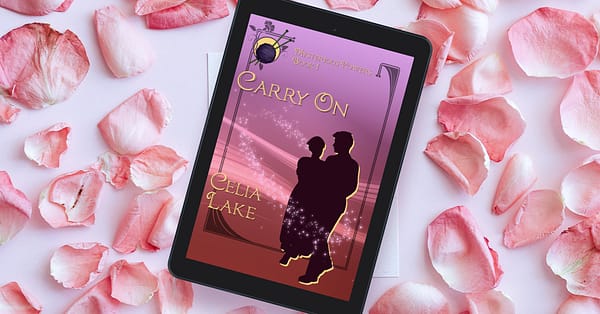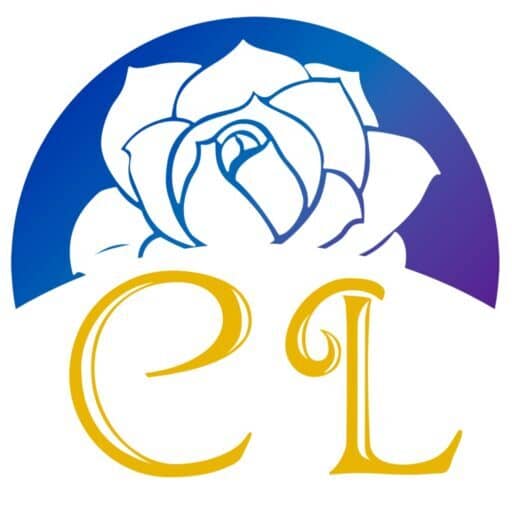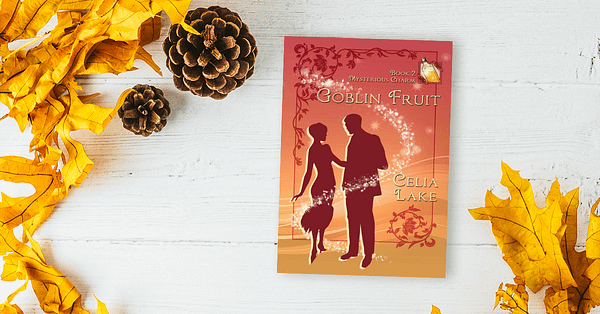The next book in our Ideas to Books series is Carry On, set in 1915, almost entirely in the Temple of Healing in Trellech.

When I started thinking about the Mysterious Powers series as a way to look at what was going on with the various institutions of Albion during and in the aftermath of the Great War, I knew I needed to be a little more consistent about planning out my timeline. (Unlike the Mysterious Charm books, which bounce around the 1920s out of sequence.)
Wanting a book during the Great War
Given the timeline, that was probably going to be my first book. And it made sense for that to be involved with war service in some form, or the impact on institutions that were directly supporting fighting, such as the Temple of Healing.
And of course, if we posit that both sides have magic that they can bring into play, it makes sense there might be magical injuries. Certianly, there are injuries that magic can solve somewhat more easily than contemporary surgical or medical techniques of the period. (Among other things, magic deals somewhat better with infection, which is a serious benefit in a pre-antibiotics era.) Not at all perfectly, mind you, but a lot better.
At the same time, I wanted a book that was set in Albion, rather than overseas. That meant something involving longer or more involved healing.
I also wanted a book where the main characters were not entirely familiar with how things were done here right now. Elen had done her training at the Temple of Healing, but by the the time Carry On begins, she hasn’t been based there for over a decade. Roland isn’t paying a lot of attention to start out (for good reason on his end). But he’s also only generally familiar with how things work, and not at all up on the usual protocols.
Thinking about the strain on the Temple of Healing
I was also already thinking about the impact on the Temple of Healing from the war effort.
For one thing, you have a lot of Healers and nurses who can going off to serve at the front, or at least much closer to it. That means other people coming to the Temple of Healing. There are new staff in a lot of places, and a constant feeling of not being entirely sure what to expect. Some materials are going to be in shorter supply. Or there are going to be new guidelines for who gets priority. Carry On looks a bit at what that’s like.
And with new magical weapons and dangers, there are also going to be things you don’t know how to treat or help or improve yet. Sometimes, existing techniques will work. Sometimes you’re going to need to do a lot of problem solving before you can do anything useful.
What does magic change?
The second part of the problem, though, is all about magic.
Healing magic draws heavily on the energy or vitality of the Healer or the people supporting the Healer. It’s a renewable but limited resource. If you drain your Healer to nil, they’re going to need a long time to recover. (Thalia, in Mistress of Birds, is an example of what happens when someone who’s being used as that sort of magical battery also gets drained too much too often.)
There’s also the distinction between Healers and nurses, where they have different kinds of training, different kinds of ongoing work, and so on. Healers are generally more focused on acute healing needs, while many nurses are focused on supportive and especially ongoing healing care. The Healer might be able to heal up a wound. But the nurse is the one helping you recover from what that did to your body, managing fevers and symptoms, and overseeing things like potions, rehabilitation activities, and so on.
Healing baths
I also definitely wanted something that dealt with healing pools and baths. They have a tremendously long history in the British Isles and elsewhere. (Bath, for one thing, and its famous baths originally dedicated to Sulis Minerva).
Here, Rhoe has been overseeing the baths for about 14 years (she takes over in late December 1901, just after Sailor’s Jewel.) She’s well established and comfortably settled in her position. Her role is an explicitly religious one, in the sense that whoever has it needs to not only be a sworn Healer, but a committed priest or priestess of the deity they’re sworn to. This means there both is and isn’t a lot competition for the role.
The healing baths are a more subtle form of healing than surgery or crisis care. The results are often a gentle shift of experience that allow someone to get less tangled about their injury, feel a bit of a blessing, or otherwise begin to knit up what was damaged by whatever brought them to need healing. But of course, immersing yourself in hot water and relaxing also has some powerful benefits sometimes.
The local waters
When I went digging into the history of healing wells in the area of Trellech, I was delighted to discover there some fascinating details. The main well of note in Trellech historically is known as “the Virtuous Well”. Here’s some info from the Megalithic Portal (a great site for looking for healing wells, megaliths, and other such things.)
But there are also some lovely posts with more details about legends associated with the well and another post that includes a description of how the number and speed of the bubbles rising in the well could be read as a form of omen or divination.
Oaths and religion
Another key part of Carry On is looking at the fact that Healers and nurses make oaths. Unlike much of Albion, they don’t make them on the Silence, but rather to a power, deity, or religious focus that they consider meaningful. (This is because the healing oaths predate the Pact, and so does the Temple of Healing as an institution, though the current physical form is post-Pact.)
As Elen notes at various points in the book, a number of people are Christian and swear to the Christian trinity, but others may swear to saints, to gods and goddesses of healing, or to other deities near and dear their heart.
Varying approaches to religion
There are people who make their oaths in ways that aren’t deistic or don’t fit into that model, but they’re relatively rare in this period and Elen doesn’t know any directly.
In most cases, the people making these sorts of oaths are doing it as a lay member of that religion or practice, without any of the obligations of a priestess, priest, or other sort of clergy equivalent with obligations to others of the same faith and practice. (Rhoe, again, does have these obligations, though as of yet, we haven’t seen her talk about the details.)
One of these days, there will be a better explanation in canonical text. The short version is that Albion decentralised Christianity due to a combination of the Pact, the Dissolution of the Monastaries under Henry VIII, and then the last straw of Cromwell’s Protectorate. Many of the Great Families went into something that mixed reconstructed old family lore, largely forgotten Roman traditions, and ‘this works, why not use it’, all in a polytheistic context. Some people continued as Christian, either Catholic or Protestant. And of course, there are meaningful Jewish, Hindu, and Muslim communities (in Albion, as well as in Great Britain at large) by this period.
Writing this at the beginning of the pandemic
One final note about this book is that I began writing Carry On at the beginning of February 2020. By the end of the book in late April, the tight focus on a tiny number of locations was feeling distinctly claustrophobic. (My job was fully remote from March 15th 2020 through to September 2021, and I’m still hybrid as I write this in January 2023.)
I actually prefer being at home quite a lot, and it has been great for my wordcount and writing in several ways. But it’s also not really a surprise that my next book, The Fossil Door, takes place in sweeping and wide-ranging Scottish landscape, is it?

